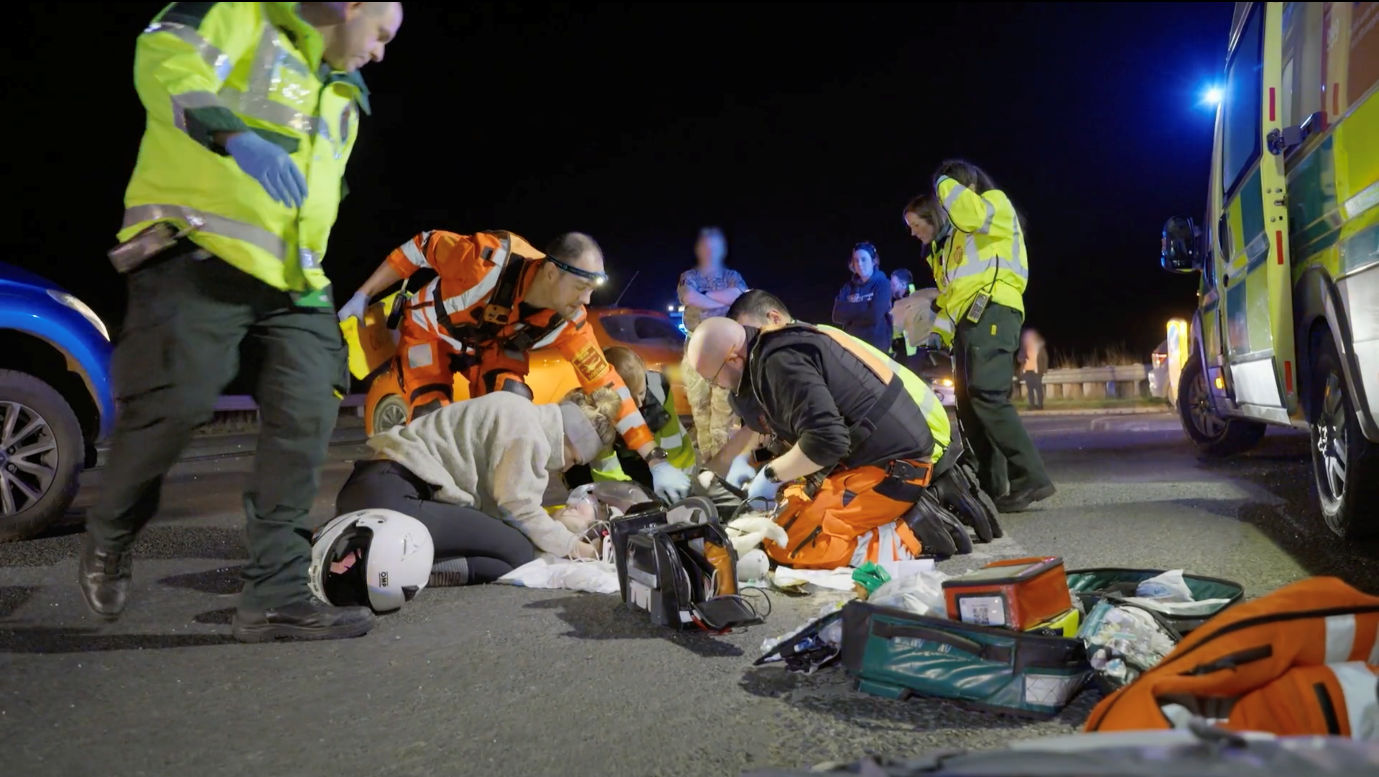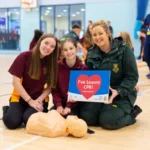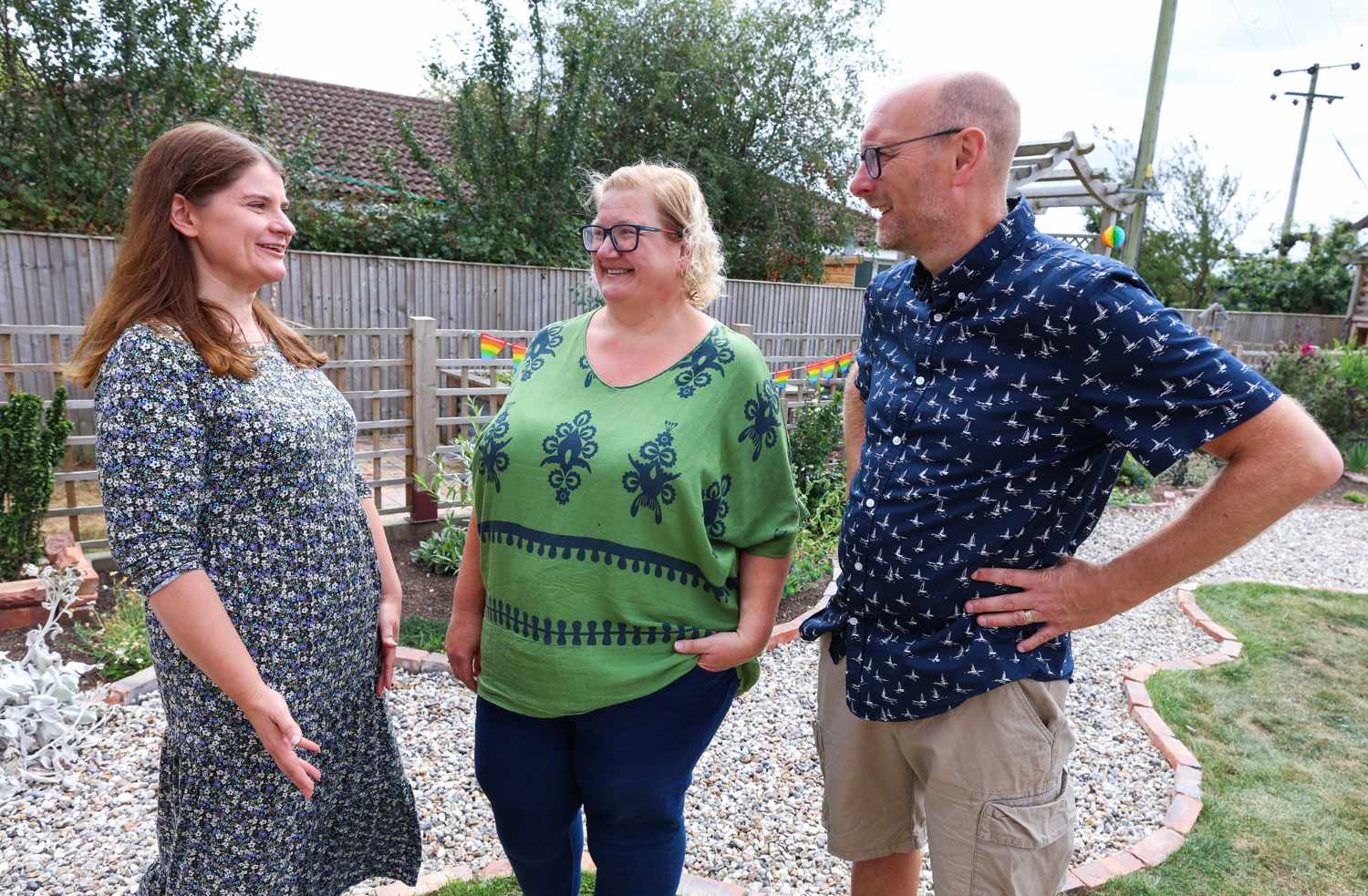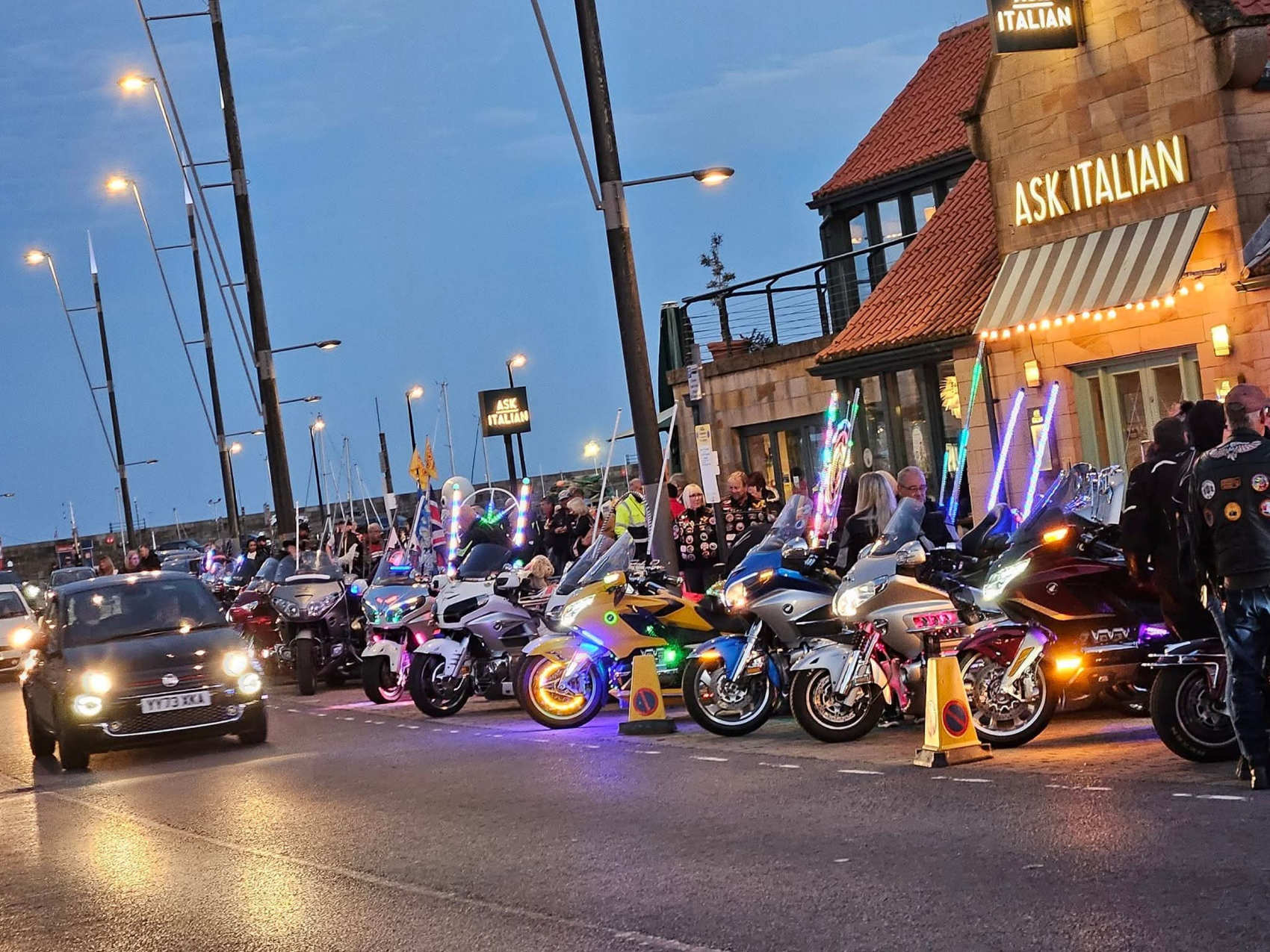Yorkshire Air Ambulance’s rapid response to a devastating road traffic collision takes centre stage in the premiere episode of the highly anticipated second series of Yorkshire Air 999, airing Friday 30th May at 9 PM on Really and discovery+
The series offers an unprecedented look into YAA’s life-saving critical care team, their courageous patients, and the communities they serve across Yorkshire. In this week’s episode, 17-year-old Katie Flounders from Thirsk in North Yorkshire is placed in a medically induced coma at the roadside following a serious motorbike collision near Thirsk, just weeks after getting her first bike.
Katie had just left a dental appointment and was riding home when her motorbike collided with a car only eight miles from her house. The impact threw her more than four metres across the road, where she struck her head and lost consciousness. The traumatic crash left her in severe pain and unresponsive, prompting immediate concern from first responders at the scene.
Yorkshire Air Ambulance’s Topcliffe-based crew were dispatched from just five miles away. Reaching Katie within minutes, Pilot Harry and Technical Crew Member Will used night vision goggles to safely land the aircraft in a nearby field, while Doctor Dan and Paramedic Stew prepared to begin treatment.
Katie had already been lying in the road for over 20 minutes when the air ambulance team arrived. Land ambulance crews had started a primary assessment to examine her injuries. She had suffered a serious head injury, broken her pelvis on both sides, fractured her wrist and sustained a bruised liver. But the greatest concern was the possibility of a traumatic brain injury, something that can quickly become life-threatening without urgent intervention.
Paramedic Stew explained:
It appeared Katie was suffering from impact brain apnoea, a condition where a severe blow to the head temporarily stops a person from breathing. This puts the patient at serious risk of hypoxia, where the brain and body are deprived of vital oxygen.
Katie was cold, confused and she was becoming increasingly agitated, a classic sign of brain trauma. The team quickly placed her on a scoop stretcher and moved her into the back of the land ambulance, where treatment could continue in a warmer, more controlled environment. There, Dr Dan made the critical decision to perform a Rapid Sequence Induction (RSI), placing Katie in a medically induced coma to protect her brain from further damage.
Commenting on the seriousness of the procedure, Paramedic Stew said:
An RSI is one of the most critical interventions we can perform. It takes away the patient’s ability to breathe independently, so we only carry it out when it’s absolutely necessary to keep someone alive.
With everything prepared, Katie was carefully moved to give Dr Dan the space needed to perform the RSI at the roadside. The necessary medications were administered, and Katie was safely placed into an induced coma. Dr Dan then inserted a breathing tube into her airway, allowing the team to take full control of her breathing using a ventilator.
The procedure is highly complex, must be carried out in a strict, step-by-step sequence, and requires a doctor to be present. This is why having a doctor on board Yorkshire Air Ambulance missions is vital for delivering advanced care when every second counts.
While the team worked on their patient, Katie’s parents arrived at the scene, having grown concerned when the app they use to track her location while out on her motorbike had stopped showing any movement. Paramedic Stew spoke with them to explain her condition and the care she was receiving. Once stabilised, Katie was transferred by land ambulance to James Cook University Hospital, accompanied by Dr Dan and Stew, where a pre-alerted trauma team was waiting to further assess her condition.
Katie spent nine days in hospital and was brought out of the coma the day after she arrived. Although she has no memory of the accident, she recalls the shock of waking up to learn the extent of her injuries. She has struggled with short-term memory loss and has deferred her college studies for a year to focus on recovery.
Katie said:
I never saw myself being in that situation. It was such a massive shock. Of all my physical injuries, the memory loss has been the hardest part. If I’m told something, I’ll forget it within a few hours. It’s really frustrating not even knowing if I was told something in the first place. I tried going back to college for a full day, but by half eleven I was texting my mum asking her to come and get me. It’s upsetting to push things back, but I know I’ll come back stronger next year.
Katie had only had her motorbike for three weeks at the time of the crash and has since decided not to ride again.
Yorkshire Air 999 continues to offer a powerful behind-the-scenes look at the critical care and split-second decisions involved in YAA’s missions. Alongside Katie’s story, this episode features an 82-year-old farmer crushed by a half-tonne hay bale, a van driver trapped with serious leg injuries following a road traffic collision, and a young runner who dislocated his knee. For more information about Yorkshire Air Ambulance and how you can support its lifesaving work, please visit www.yaa.org.uk









